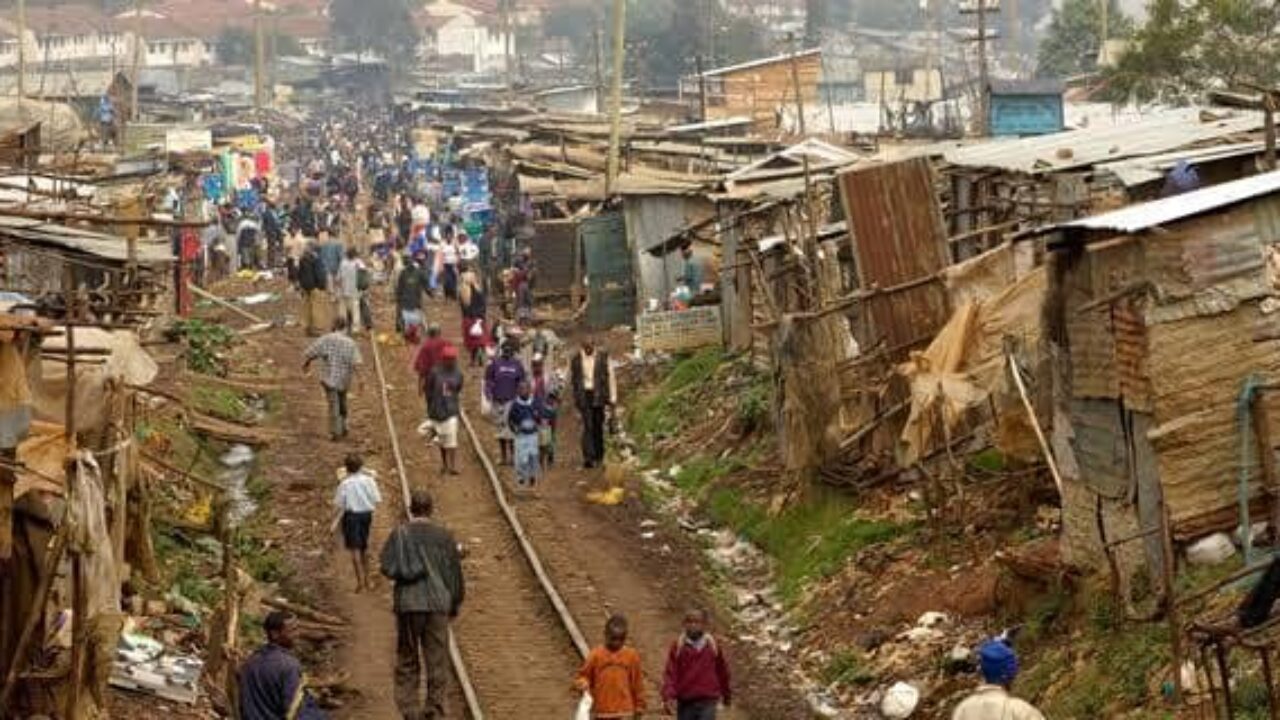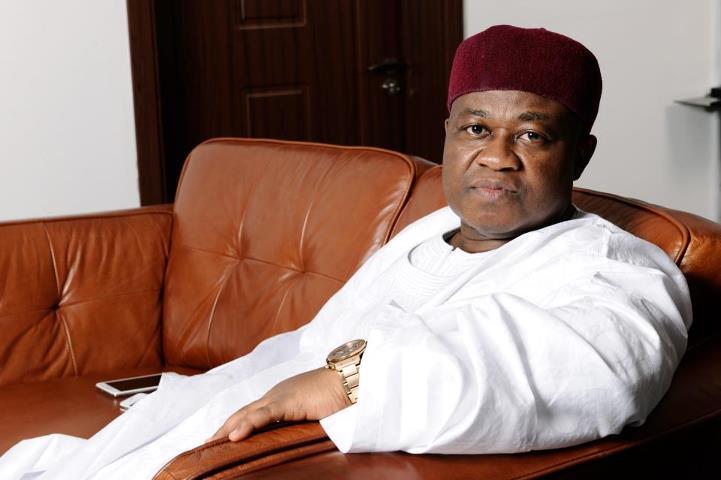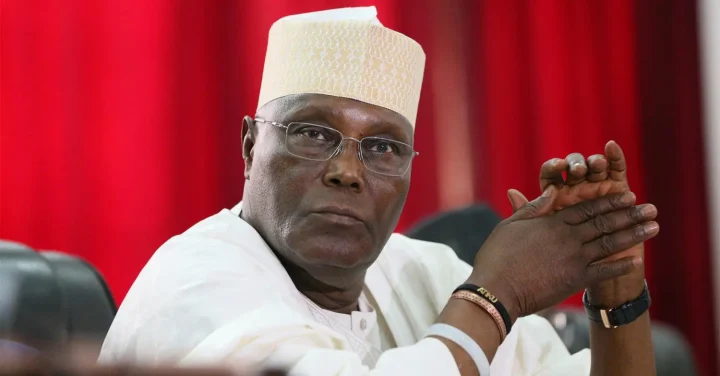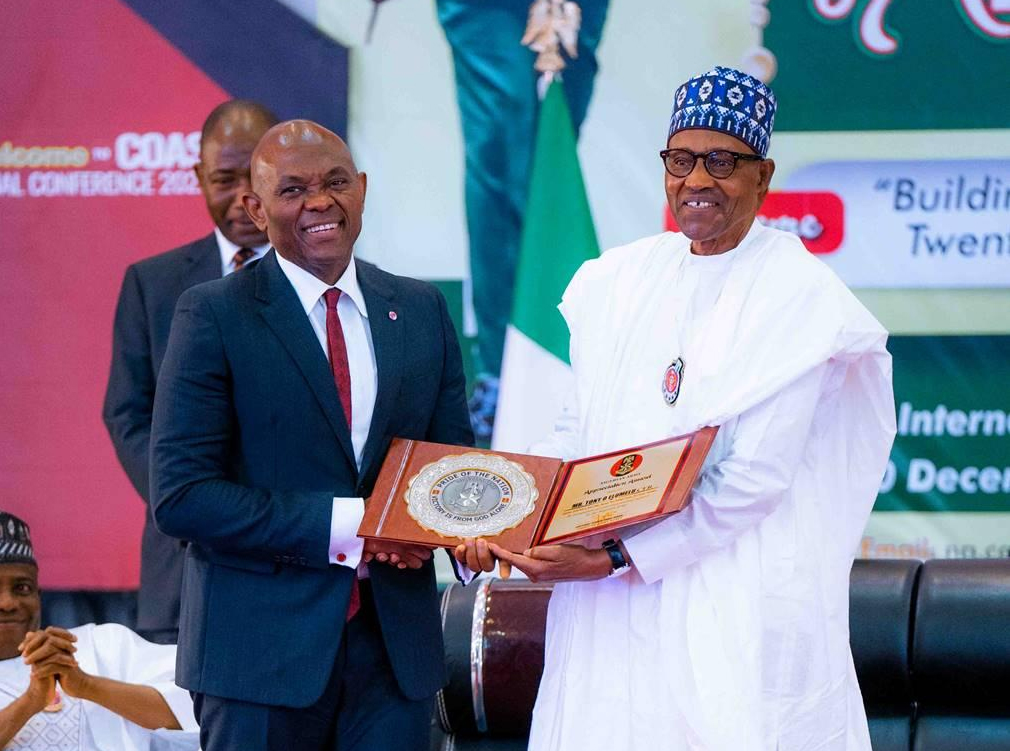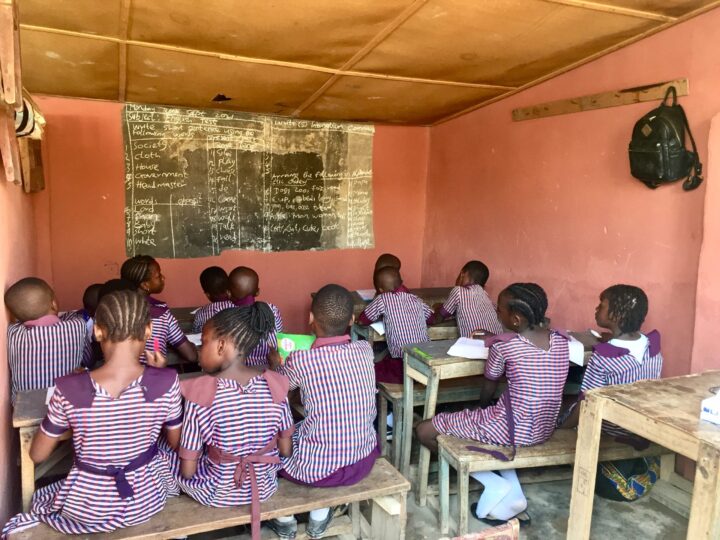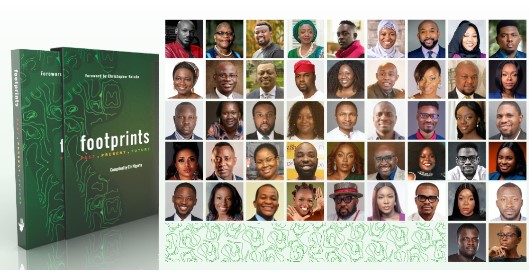As the debates sparked and now rage over the embarrassing rate of multidimensional poverty as reported by no less than the National Bureau of Statistics (NBS), it behoves me to humbly intervene in the vexed matter with a view to making positive of the hoopla. For, as usual, the raging debate stands a chance of dying off like others before it, with nothing gained and with Nigeria remaining where she is or even worse, when as they say; “it pays never to let a crisis go to waste”. The penchant to allow crises to go to waste is partly why we are where we are today. It is generational, such that even young Nigerians are satisfied with dragging the older ones, insulting and cursing them, even beating them up where they can, but never ensuring that real, considered gains come out of the crises they stoke, or that get thrust upon them.
As I had expressed in a Channels TV interview earlier, the debate itself – just as the data that 133 million Nigerians are multidimensionally poor – is an own goal for the government. I have my doubts about such severity of poverty in Nigeria honestly, and even as to whether Nigeria’s population is what we say it is, sans politics. We know how our politicians have always bloated population numbers for their constituencies to win elections and get fatter federal allocations. In keenly contested elections, Nigeria has been unable to justify even 50% of the population it claims if we are to extrapolate. Multidimensional poverty however speaks to not only monetary poverty but also access to basic factors that add value to life – schools, libraries, health facilities, sporting facilities, parks and what have you. In that regard, yes, many Nigerians have no access and indeed consecutive governments have not been able to provide many of these amenities at scales that may be considered adequate and sustainable. The argument as to who is responsible for poverty – between federal and state governments – is unnecessary and unproductive. The administration of President Buhari has waited until the end of its tenure to have this debate in the first place. Perhaps we can salvage something from the hullabaloo.
If we are to consider which segment of government should be responsible for lifting the nation out of poverty, we may look at our structure of government and at what the constitution prescribes for every level of government. The controversy still subsists as to whether the federal government should arrogate 66 items to itself and leave about 21 to the states. There is however the fluidity of those exclusive and contemporary items as we have seen with the power sector, the transport sector (trains) and what have you. We cannot hide under constitutionality, no matter how easy it is to duck the real issues. The same constitution initially provided for local government autonomy and guaranteed the LGs as a ‘federating unit’ but the governors showed up and vitiated that position by creating what is called ‘joint accounts’ by which they collect federal funds meant for local government into a single one they control and disburse what they like. Most of our states have failed to conduct elections for the local government councils, preferring to run that level of government by proxies. What is obvious now is that the states have not shown enough prowess, dexterity, commitment, expertise, fidelity, and creativity, towards governing and administering local governments, just as our federal government has been too feeble in setting the pace for state governments and defining an overarching vision. Of course, the local governments, where the rubber meets the tarmac, development-wise, are totally absent.
In spite of the structural challenges – many of which will keep morphing and never disappear – I believe we should look at big ideas instead. No constitution is perfect, that is why the Americans have amended their 27 times since 1776. And many nations around the world have developed in spite of imperfect constitutions – from China where they run a one-party state to India, where the local governments are also listed as ‘federating units’, to some of our north African neighbours who are already integrating with Europe and of course, the Arab World through the Gulf Cooperation Council (GCC), in terms of infrastructure and trade. I believe we need to push back against this idea of boiling down every little and simple thing to matters of law and constitution. As they say, the law is made for man and not man for the law. We are also in this trap because we have a surfeit of lawyers in politics (naturally, as they are trained to speak up and get involved), and as they say to a carpenter, every problem looks like a nail needing a hammer.
Advertisement
So, I propose that just like some of the countries I mentioned above, what we need are big ideas. Like China, which had pulled 800 million people from poverty and is on the verge of eradicating poverty entirely from a country of 1.5 billion people (seven times Nigeria’s population if we are to believe current National Population Commission numbers), we need an idea as big as their Targeted Poverty Eradication programme, which documents every family in the vast country and sets about addressing their very source of stress – be it educational, health, low crop yield, location and so on. The Chinese poverty eradication story could be traced back probably to their cultural revolution which assisted their people to stay focused, be more patriotic and embrace hard work. There is also the fact that their politics is not as financially wasteful as the American type that we adopted, as well as the fact that their science is taught in their language thus making it easier for every Chinese to be able to grasp scientific and other concepts more easily. Many believe that the pendulum of development has swung back East after about 500 years in the West. China is into big ideas. India also copied that. PM Narendra Modi instituted the Make in India project that focused Indians on local production and attracted foreign investors. He also instituted Swacch Barat (Clean India), and showed personal examples, rallying Bollywood stars to his environmental cause. By instituting a nationwide idea whereby Indian women went on a toilet-building frenzy by selling some of their gold, Modi has seen to the construction of about 100 million toilets, thus relieving rural Indian women of having to head to the bush as their ancestors have done. Bill Gates, in 2019, called this “the biggest behavioural change project in modern history”.
I also visited Egypt and Morocco in north Africa and saw that they are into big ideas. Egypt just built a new capital. That country leverages their construction prowess to ensure that roads and bridges are constructed with ease all over the country. Most Egyptians live in what are called compounds, which are blocks of flats. They have also made much capital out of tourism, being the top earner in Africa as the world throngs to visit their pyramids. With tourism alone, Egypt will survive. Morocco has made a big idea out of its beaches. All 400 kilometres stretch of their coastline bordering the sea has been developed into exotic or free beaches, used for oil refineries, several ports, depots for a thriving manufacturing industry or other very useful purposes. That everyone has been convinced to live in flats in Morocco and shanties is clearly an aberration, to me, is a big idea. The aviation industry in Ethiopia, even if they have nothing else, is a big idea. The sheer efficiency and local content in that industry since they maintain the aircraft themselves and have one of the best aviation training organisations in the world is a big idea. My definition of a big idea is one that is visible from space, that affects tens of millions of citizens positively and sets them on a development trajectory, that banishes poverty and elevates the humanity of a people. We are in dire need of these in Nigeria, not the back and forth about who or what level of government caused or promoted our poverty. As Karl Marx said: “The philosophers have hitherto only interpreted the world in various ways. The point, however, is to change it”.
A big idea, a big, hairy, audacious, and ginormous idea would tip a country positively out of her sleepiness and complacency. But such an idea will be a mere white elephant idea if it does not come with adequate planning, and a willingness to go the long haul by the leaders of a country. As Nigeria stands today, a big idea will die a natural death because of the toxicity of our collective behaviour and leadership deficits. You cannot run a big idea if civil servants simply dip hands into the commonwealth and suck out the very lifeblood of a country, or if projects are tribalised or religionised. There must be a commitment to standards and there must be someone high up who will stake his life on the success of the idea. The citizens must also heckle less and recognise the goodness of such an idea by supporting it for their own good.
Advertisement
That said, the following could be some big ideas around our current circumstances in Nigeria today. The list is certainly not exhaustive and some of the ideas could be dismissed by some people as harebrained. They are however the ideas I would be willing to experiment with if I had my way. I categorise these ideas into two:
- Unlocking liquidity Ideas that can unlock trapped liquidity within the country. we usually say Nigeria is rich. Well, that’s debatable. We need to understand that other nations are sitting on incredible amounts of wealth too, silently. Africa is ordinarily the most explored and exploited continent. No one will tell you what minerals they are sitting on in Europe and America. You dare not even ask. That said, Nigeria is sitting on illiquid wealth from decades-long corruption; monies hidden in different places, including those stashed abroad. Nigeria will do well to find ways of prising out these monies for immediate use – even if it considers a program of amnesty. Nigeria also sits on dead capital of at least N90 trillion according to PriceWaterhouseCoopers. These are mainly to be found in useless real estate. In Abuja alone, my research shows we have over 500,000 luxury houses at different stages of abandonment. Yet we complain about the lack of housing. These assets have to be put to work somehow. Or at least let us figure out how they can be useful as we reimagine a new nation and economy.
- Creating new capital (financial, social, etc): By this, I mean that Nigeria has to think of how to create new opportunities and generate new capital from within, not only the fixation with foreign capital. Factors of production are regarded as land, labour, capital and entrepreneurship. Capital is important but it is not everything. Capital has however taken on growing importance in that mix, even as labour (which is what we can boast of, aside from land), has become less and less worthy. Capitalists have substituted human beings (labour) with machines, technology, apps, robots and what have you by deploying money (capital) to purchase these innovations which do even better work, in many instances, compared to human beings. Before we continue rushing abroad for capital (money), much of which are exploitative and expensive, Nigeria needs to think of how we could generate new capital here. There is what is called social capital and we have an advantage here. I believe Nigeria can get her citizens to do things for the country, for free, rather than go a-borrowing. I will propose some of such ideas below. That is social capital, which can unleash financial capital.
Some big ideas
I hereby propose some out-of-the-box ideas that can get Nigeria to start looking different and that can affect millions of Nigerians positively. My ideas are by no means perfect or exhaustive. The bottom line is to stop bellyaching about poverty and start doing real work about eradicating it.
- University and polytechnic students pressed to work: I believe that Nigeria is at war. We have always been. For the most part, it’s an economic war. So, when at war, you must use your resources, recruit hands and get your young ones to step up. I believe we have been underutilising our youths. They can be empowered economically and immediately handed the reins of their country without them getting directly involved in politics. Nigeria has universities, polytechnics, and colleges of all sorts strewn all over the country from north to south. Imagine if we can get these young folks to start getting involved at the local government levels where they are, in public works they can build little roads, help with water projects, get involved in teaching children in the villages, build electricity projects using alternative energy, and generally get involved in the maintenance of infrastructure. These students will get paid a token for their work – many of which will be experimental (who says they must be perfect) – and they will also have something to put on their curriculum vitae from school. We can even get these students to start working on massive language, translation and history projects in the country, stuff that can be put online to start charting another trajectory for Nigeria. I am talking of such massive projects that will be noticed by the largest media houses around the world, no matter their discrimination.
- Education and sponsorships connected to national awards: By this, I mean that the educational sector of Nigeria – especially at the primary and secondary levels – can be transformed by alumni more than is the case if the government will recognise their efforts. Alumni can rebuild or renovate whole schools if these projects were put in a national framework. All that most will want is some sort of recognition. Imagine that the best and largest 1,000 projects nationwide will attract some national awards where donors will meet the president. Imagine competition along these lines? It will be very transformative and this will precipitate an inflow of resources to our rural areas thus reducing extreme and multidimensional poverty. This will also be a much better idea than the current award system where all sorts of people get sneaked in, and some get awards for benefiting themselves and making money without necessarily giving anything back to society. As can be seen in the case of Dr Phil Ozuah who gave a whopping $1 million to the University of Ibadan, we have thousands of people out there who can do more, the same or slightly lower than this. This also does not have to do only with the educational sector. The health, social, housing and other sectors could also be so transformed. I believe that since we are very communal people, this may be a very potent way of transforming our societies going forward. Down in Eastern Nigeria, there have been many such initiatives by private citizens. This is a way of inflowing new capital. I recall a Dr Maduka who built one of the largest hospitals in Nigeria in his village and offers so many surgeries for free. What about the west, south and north of Nigeria? I’m sure they have rich indigenes too. The federal government could anchor a program that emboldens such initiatives.
- Housing sector: A big project that will transform the face of Nigeria and heavily impact multidimensional poverty is a real mass housing project for low and middle-income earners. We have never done this in Nigeria and what we have is a situation where people struggle to build, in an unplanned fashion, substandard houses everywhere. Millions of ramshackle houses are still being built in Nigeria today which reflects the instability of our people’s income In Abuja, tragically these slums and shanties have metastasized such that they are almost infringing on the international airport runway. It’s a huge shame that in the nation’s capital, the first thing that meets anybody’s eyes is shanty houses. When I visited Morocco recently though, I found out that everyone has been made to live in flats. They somehow got past all the cultural holdups. In Nigeria, weak leadership over decades has ensured that many of our people maintain backward ideas. Some say they cannot live in flats. Others insist on having massive compounds and bungalows. Yet others talk about their ancestral lands and what-have-you. We have now crossed the Rubicon and it’s looking like we lost control of our society and development trajectory. This must end. The housing sector is both a disaster and a great opportunity. In Morocco, China and other countries, massive projects that transform that sector, spur behavioural change among hundreds of millions of people and crash multidimensional poverty have been led or powered by the private sector. The same should be possible here. We have to transform the face of our country. Current approaches have been tentative, weak, small, and lacking the right punch. Like elsewhere, the private sector should figure out how they can profitably build sustainable mass houses using local, cheap materials (this is where academia and researchers come in), which low and medium-income earners can rent to own. The truth is that we have never sat around tables to consider these ideas. All of what we get in that sector are luxury housing, most of which lies fallow today. Why are we doing this to ourselves?
- Churches and businesses (Cottage industries, agriculture, etc): Well, our people say that you look around the house and your circumstances to get inspiration about what name to give your new child. If we look around Nigeria today, we will see that our people are very religious. Our religious houses (especially churches) have expanded greatly and have also become repositories of wealth. Some people believe that they are sitting on too much money and should be taxed. Now, that is a contentious proposal. But what if indeed as they believe, the church is meant to drive the earthly prosperity of Nigeria? What if that is a divine call and the accumulation of this wealth is not by mistake? Suppose our churches figure out how to deploy the liquidity they gather every week towards industrialising their communities. I understand one of our largest churches (Christ Embassy), is a major player in a new bank (Parralex Bank). This is a smart move because if the bank is well-run, the church’s money will expand. Her members could even get loans much more easily. However, I believe that Nigerian churches could go into cottage industries and create millions of jobs nationwide for their members and beyond. From what I know from members of some of these churches (including their top leaders), some of them are merely sitting on ‘obscene’ (in the words of one of them) amounts of money. They may need to be reminded that this is earthly money, that should be deployed urgently to improve the earth. I also believe that this may be the best way of getting new converts. If the trillions of naira that are in the purview and possession of churches are deployed this way, even the heavenly bodies will take notice. And the projects will be visible from space, most definitely. Bola Tinubu’s push for consumer credit as a way of reducing corruption also has the capacity to boost consumption and productivity so long as most of what we target is produced in Nigeria. That is another big idea.
- Chinese private sector: I think that in general, there is a great lesson to be learnt from the involvement of the private sector in Chinese poverty eradication. This will involve a whole new article from me (in the works). Nigerian banks and our private sector should study this ongoing program which is totally eradicating poverty among 1.5 billion Chinese. There is money to be made, even though modestly. The idea is to help in building new Nigerians in a new Nigeria. We should all work together to change our representation from the spectre of want and malnutrition and chaos to something more organised and alluring.
- Lessons from India Swacch Barat: Even though he may be criticised in other ways (especially by those who accuse him of a Hindu agenda), PM Narendra Modi has done a few remarkable projects that we could learn from. One of them is the Swacch Barat (interpreted as Clean India). In this program, Modi sought to tackle India’s reputation as the dirtiest country in the world. He put himself to it and could be seen on the streets sweeping in the early days. He also co-opted Bollywood stars to the project. More significantly though, he tried to tackle the generalised habit of open defecation. He did this by targeting women in the rural areas and convinced many of them to sell their gold and build toilets in their homes rather than risk going into the thickets at night where some get bitten by snakes and other reptiles or get raped and killed by predators. At last count, almost 100 million new toilets have been built in India since he became prime minister in 2014. Bill Gates visited India in 2019 and wrote that what Modi had done was the world’s largest behavioural change programme in modern history. Of course, Nigeria has taken over the mantle from India as the country with the largest number of poor people and the largest in terms of open defecation. These are togas we need to work to shed. Our work is pretty much cut out for us in Nigeria. Only lack of imagination and insincerity are the impediments. If we could adopt some of India’s ideas, we could be onto another big idea. Imagine the amount of cement and porcelain materials that people have transacted in India. Imagine the number of jobs for plumbers, painters, masons, and of course the youth vanguard that had to be deployed to ensure that villagers actually used the bathrooms that even they had built? Imagine the radio and TV and social media campaigns to make a success of this behavioural change programme. Hundreds of billions of dollars have been spent.
- The cleanest, safest and most organised country in Africa project: This is an idea that I’ve had for some time and which I documented in my 2015 book ‘Change is Going to Come’. It is still valid and is a big idea because it is multisectoral. I envision how we could launch this national renaissance program that targets our environmental, social and security sectors and put the only thing we have – human beings – behind it. The aim of this project is the journey, not the destination. And it also encompasses a critical factor – mass mobilisation. I environ MAMSER (Mass Mobilization for Self-Reliance, Justice and Economic Recovery) to a power of ten. MAMSER was a great idea in the 1980s and early 1990s by which the Babangida government managed to corral many youths to support the policies of the government. MAMSER collapsed to become the National Orientation Agency, which is arguably now comatose. Perhaps the lesson from this is that such an organisation needn’t be ossified into some ministry where papers are pushed but be maintained as active programmes. I envision that this kind of programme is advertised in international media and social media to begin to rescue some of our reputation. I believe this is now needed more than at any point in the history of Nigeria. We have now hit rock bottom such that UAE which admits every human being has singled out Nigeria for a total ban. It must be that there is something very nerve-grating about Nigeria and Nigerians. We could blame countries like the UAE for racism or whatever, but I believe that it is feedback to us to start fixing ourselves urgently, from home.
From all I have discussed, it is evident that there are tremendous opportunities here in Nigeria. We need not be running around all over the world while we abandon our own country to filth, degradation, dilapidation, neglect, carefreeness, insecurity of all hues, and general disorganisation, including corruption and stealing at all levels. It is Nigerians that will organise Nigeria and make her into something great. And the earlier we start, the better.
Advertisement
I am generally hopeful that Nigeria has seen the worst, and from henceforth we can only make progress. But again, that depends on us. Our problem is not only political leadership but highly systemic in nature. Success will only come if we all decide to chip in ideas. Nobody knows whose ideas will make the difference.
I invite readers to contribute big ideas that match our circumstances and do not require too much money or other resources in the comment section.
Views expressed by contributors are strictly personal and not of TheCable.
Add a comment

